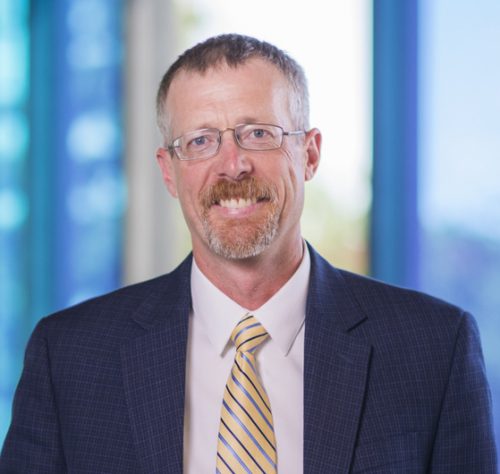Friday Focus: Letting go of what was for what can be
November 22, 2019

— by Dan White, chancellor
As a faculty member, one of the subjects I worked on was how to better purify drinking water. Specifically, understanding and removing the complex organic compounds that naturally (or not naturally) occur in both ground water and surface water. One very simple analysis that we ran was called dissolved organic carbon (DOC) as a bulk measure of how much organic “stuff” was in the water. This analysis was run using a machine about the size of the university cornerstone (let’s just say a small refrigerator). At the time I started, we had two of these machines, both old. One machine was older than the other. The less old machine worked okay and the older of the two did not work at all. We kept the old one just in case. Just in case it might have a part that might still work that we might need. And there was nostalgia. These old machines were vintage. Well, we never used the oldest machine, never took a part from it, and finally, when the Duckering Building was vacated for the 2002 earthquake upgrade, we finally disposed of the old thing. But for more than a decade, the machine occupied valuable heated, lit space in our lab and our psyche. I would argue that we never got a new one because we never got rid of the old one. The analyses we ran on the less old machine were not as accurate as the new machines, took more time to run, were more difficult to maintain, and took up more space than the modern alternatives. Plus, the less old machine compelled us to keep the more old machine for parts. However, the problem with getting a new machine was that the parts from the “spare” would not fit a new machine, only the marginally useful one we had. We never did use parts off the oldest machine because it did not work. You get my point.
We have 617 known freezers in our maintenance log at UAF that are costing more than $300,000 per year in electricity, not including the value of the space they occupy or the maintenance to keep them operating. While they provide a valuable service, they are, in some cases, holding samples that we will never run. I know - I kept samples of organic matter in water for more than a decade, just in case.
As I mentioned in yesterday’s budget forum, I believe that we can make meaningful progress towards our goal of preserving academic and research programs by lowering our operating costs. A big player in this is space and stuff that we could use better. The same applies to information technology. Much of our video conferencing equipment is obsolete but occupies physical and psychological space. As we chart our path forward, I encourage you to look forward. What do we need on our journey? What will slow us down, and what, like that old piece of water testing equipment, keeps us looking back? Every time we look back we are not looking where we are going. If there are spaces we can clear out so that we can reduce capital costs, reduce operations and maintenance, or reduce deferred maintenance, we will be more efficient and more effective. And we need it because we need people. Old outdated equipment, not so much.
Speaking of people, Jessica Schnabel was in town this week talking with UAF about women in engineering. Jessica is the Global Head of the World Bank Group’s “Banking on Women” program. One of her points was that growing the number of women in engineering is not only about Title IX, or equity. It is imperative because it is good business sense. Right on! And if there are things we are doing that are not allowing us to capture all of the bright minds, we are hurting our ability to fulfill our mission. If you don’t see yourself in our leadership, in your mentors, in your colleagues, let's figure out why not because whatever reason that is, it is hurting our organization. We need people with every perspective, history, and identity to make this university go.
So as we let go of outdated machines, underperforming space, old habits or harmful stereotypes, we move forward together. That’s good business.
Thank you for choosing UAF.
Friday Focus is a column written by a different member of UAF’s leadership team every week.


